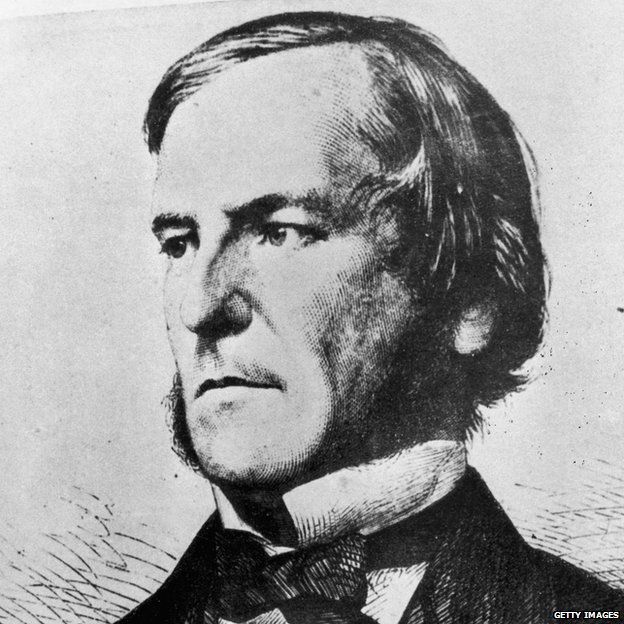George Boole and the AND OR NOT gates
- Published

Mathematician George Boole died 150 years ago. Boolean logic, the system he invented, is still used in modern computer programming, writes Chris Stokel-Walker.
Boole walked two miles to the lecture hall where he was due to give a lecture to students in 1864. But it was raining, and he became ill, dying of pleural effusion - liquid around the lungs - on 8 December 1864. He was 49.
In the last 17 years of his life he had established the concept of algebraic logic in mathematics, and simplified the world down to basic statements with either a yes or no answer, for which he used binary arithmetic. "The respective interpretations of the symbols 0 and 1 in the system of logic are Nothing and Universe," he said. It was a concept he first introduced in 1847, and expanded on in 1854. But even now, 150 years after his death, it's used in computer programs.
"Almost every other line of a computer program has a Boolean statement in it," says Michael Dunn of Gospelware, an iOS and Android developer. "It's not something you think about; it's such an integral part of programming."
Boole used the concept of gates, or questions, probing an individual statement - the answer of which is a Boolean yes or no. The most basic three gates are AND, OR or NOT statements. It's possible to deploy Boolean logic using algebra. Statement A ("Today is Monday") is true. Statement B ("It's currently sunny") is also true. Using AND, OR or NOT gates, you can create more complicated statements explaining both the date and weather.
Boolean logic is all around us, in the code behind the games we play, the apps we use, and the software we work with on a day-to-day basis. The basic level of commands given to computers - the building blocks of how these things work - are based on Boole's logic. "You can't get away from the term Boolean if you're a programmer today," Dunn notes.
It's also under the hood of our search engines. When you search for "Miley Cyrus" there's an implied Boolean use of the AND command to combine the two words. In the early days of search, the AND, OR and NOT commands were commonly used to winnow down search results. Today advances in search technology mean many searches can be carried out using more natural language. But Google still allows its users to type in OR (to single out Wimbledon winners from specific years, for example), or to use a minus sign to signify NOT (to remove all mentions of trainers from a search for the ancient goddess of victory, Nike).
Boole himself had a notion of the impact his logic could have. He told a friend in 1851 that Boolean logic could be "the most valuable if not the only valuable contribution that I have made or am likely to make to science and the thing by which I would desire if at all to be remembered hereafter".
Subscribe to the BBC News Magazine's email newsletter to get articles sent to your inbox.